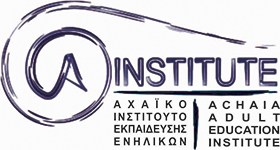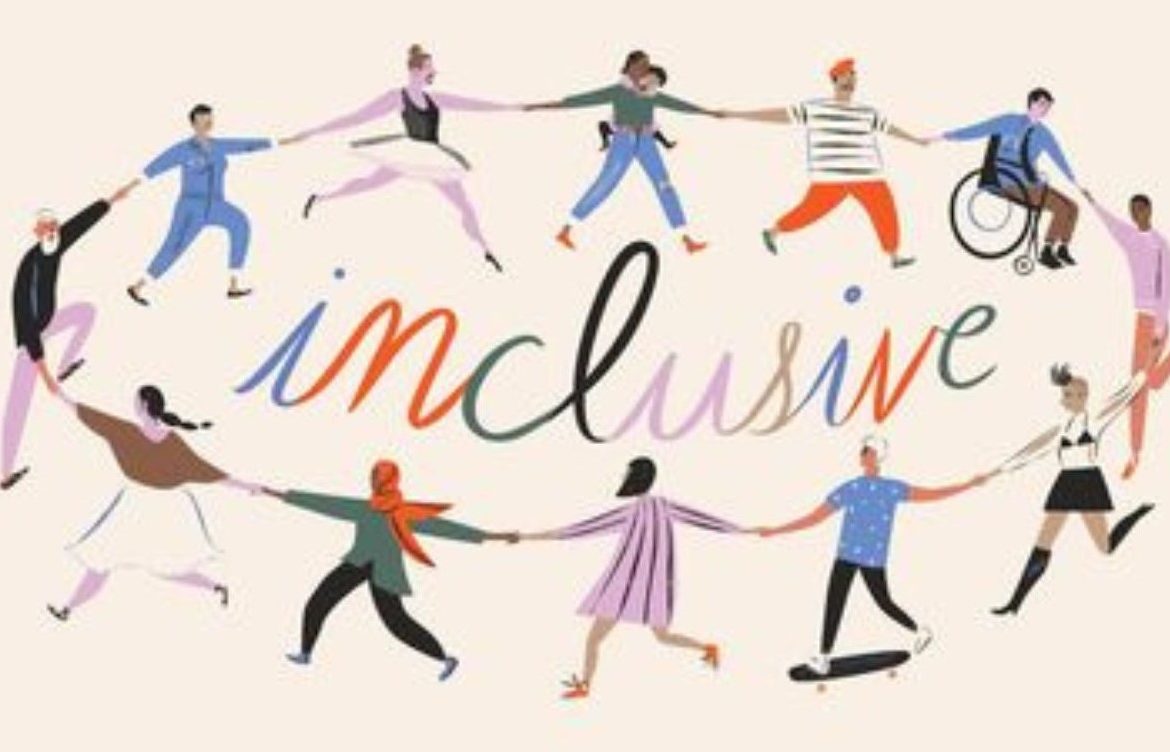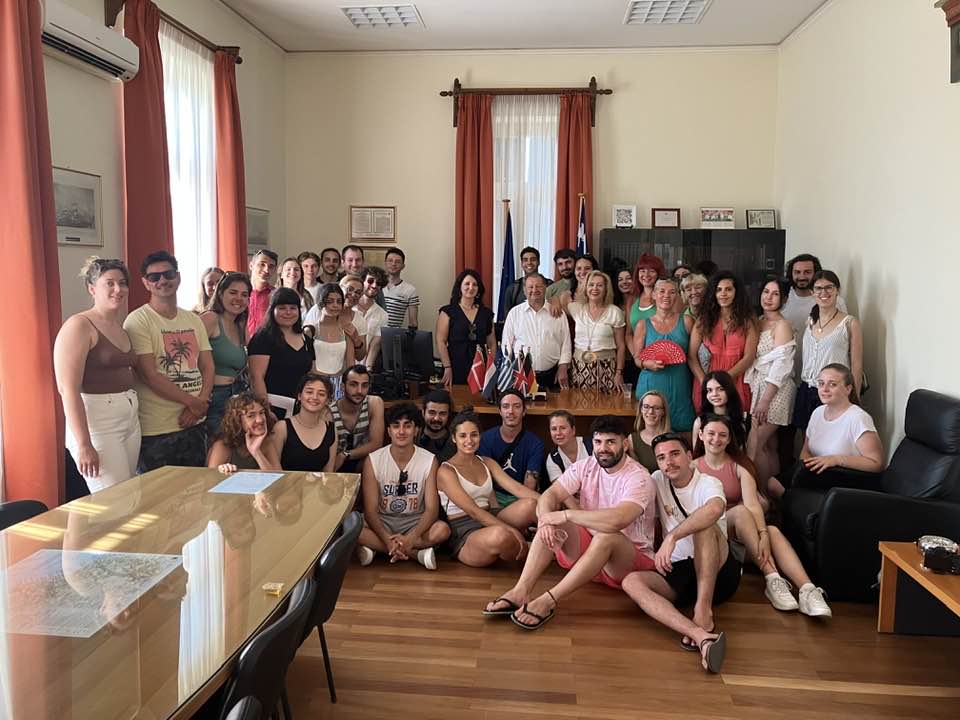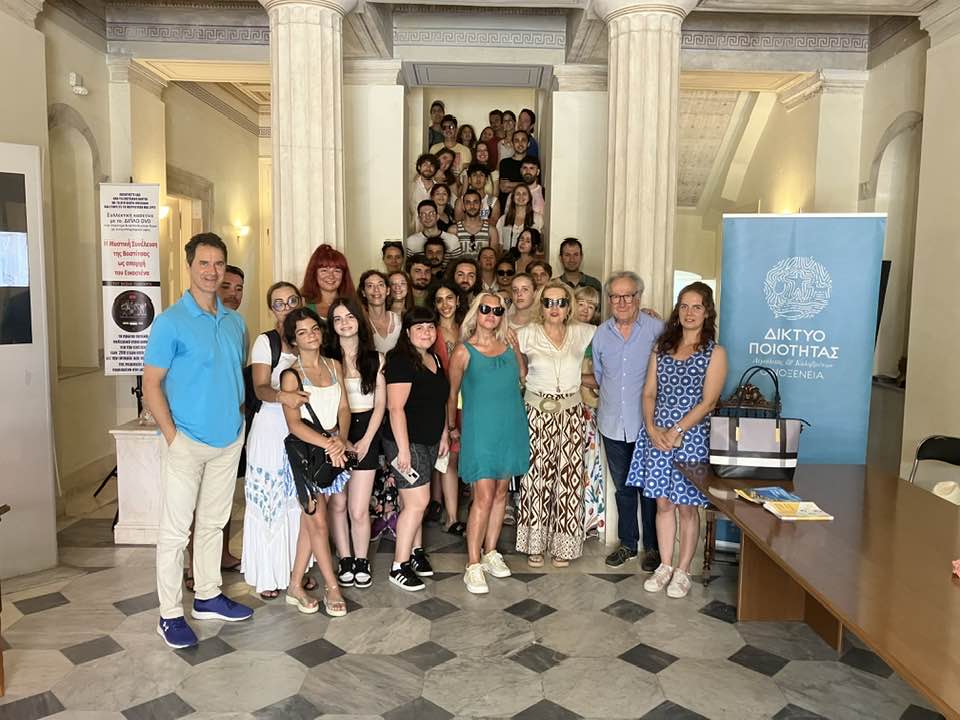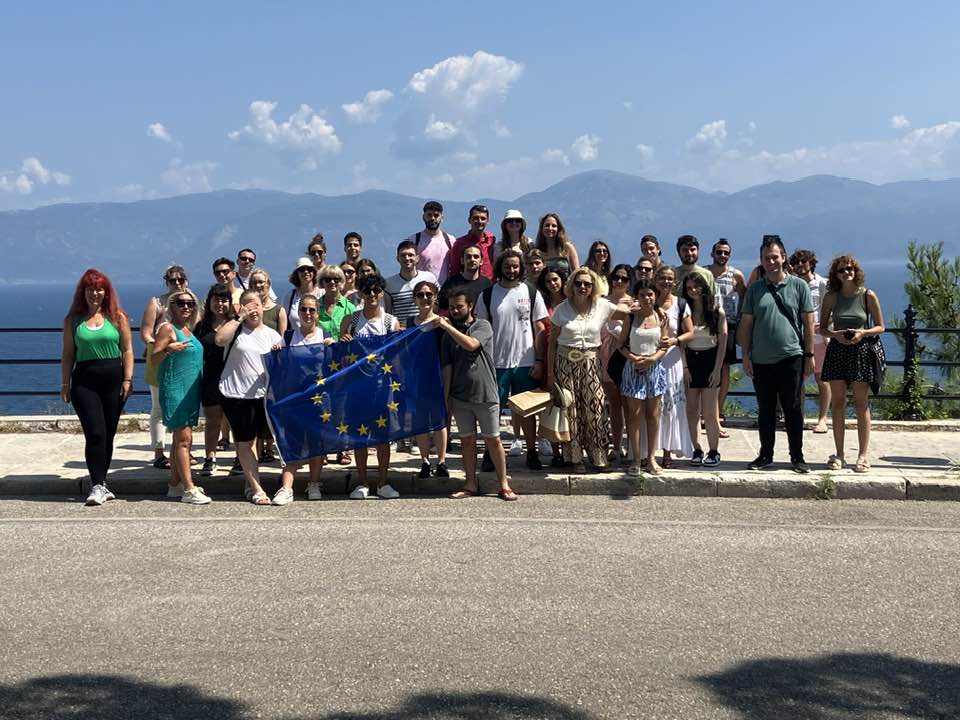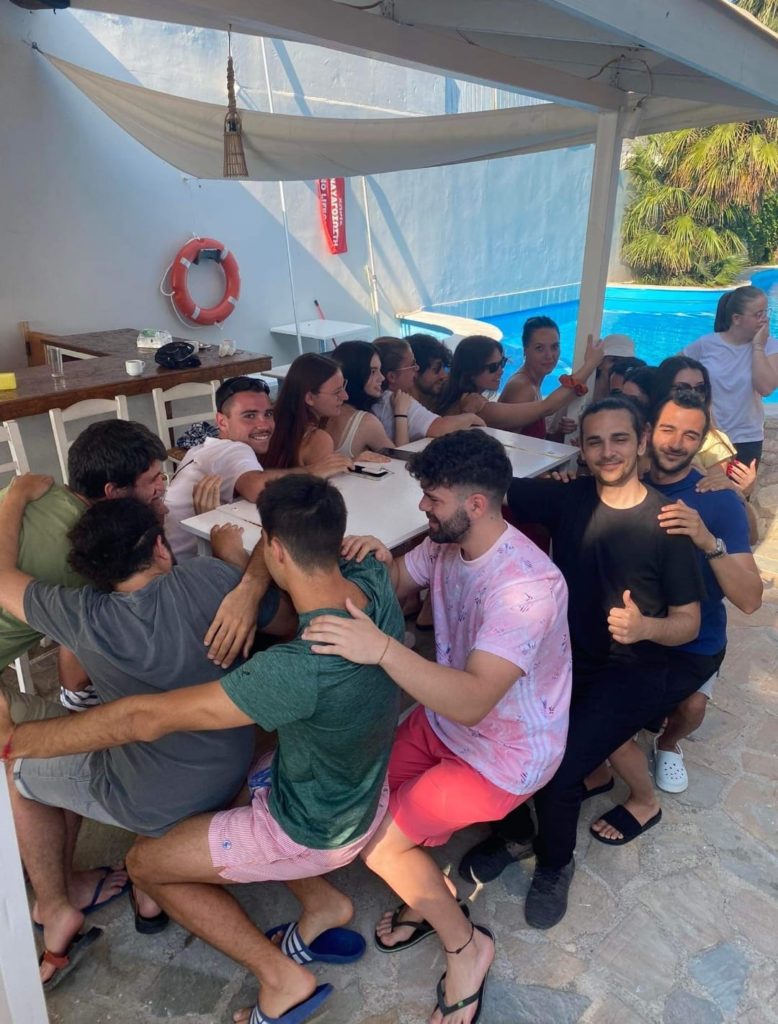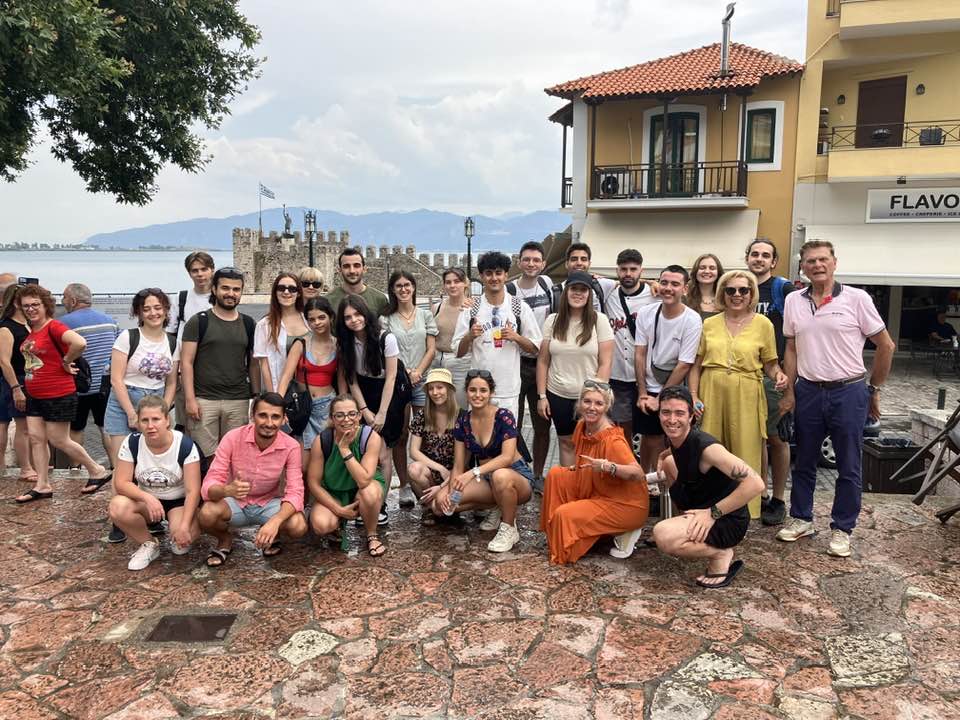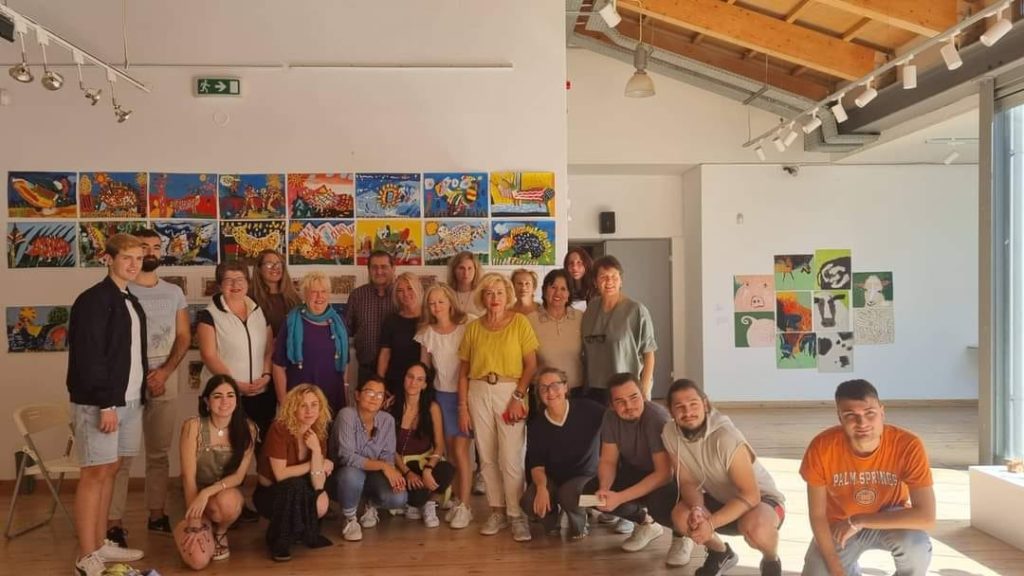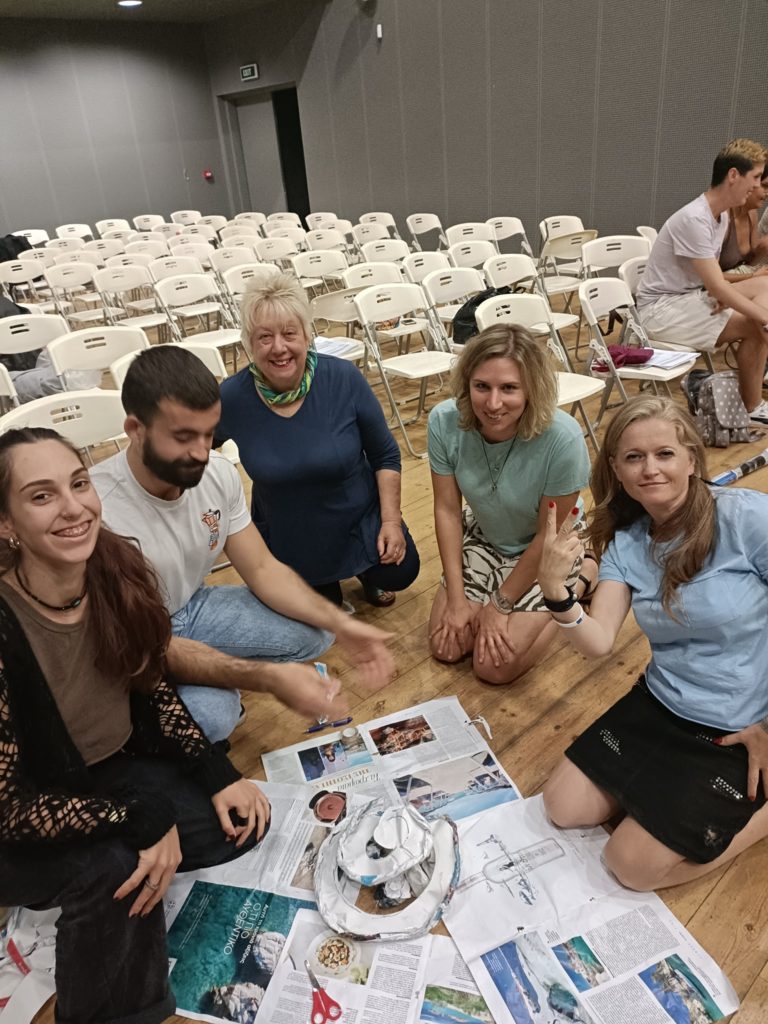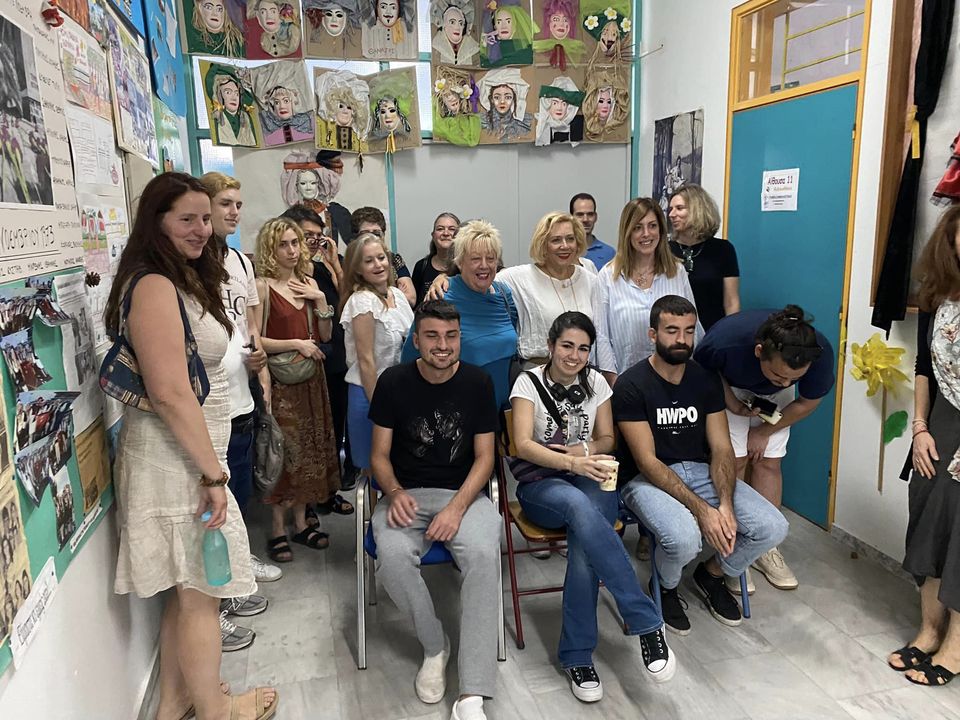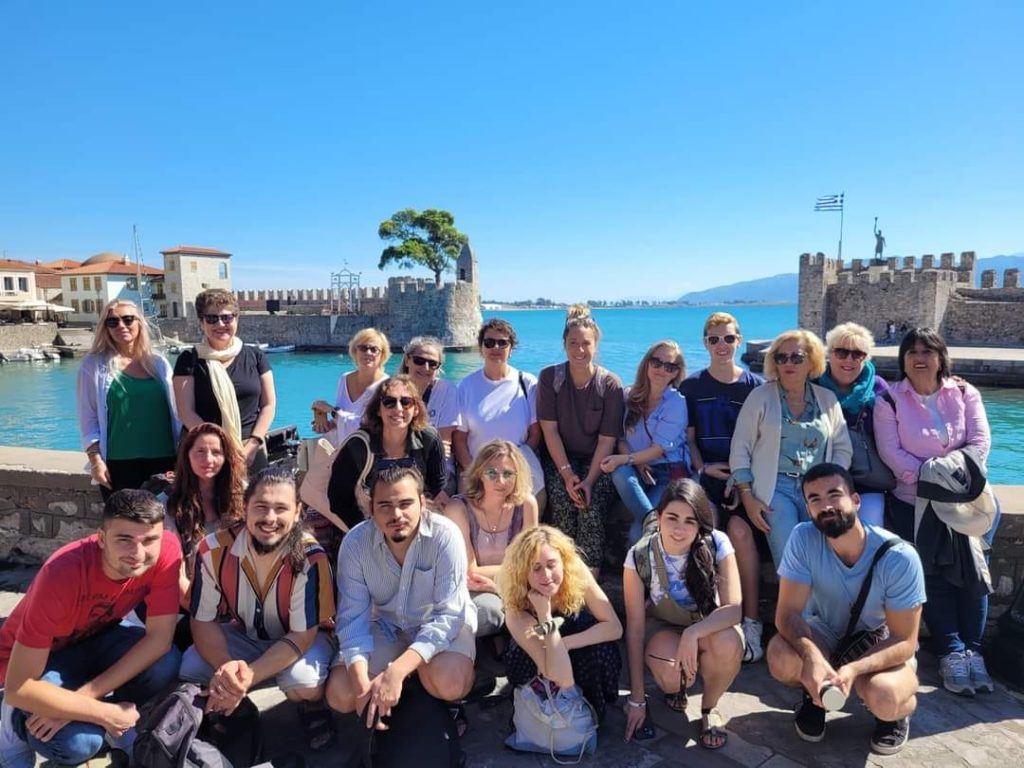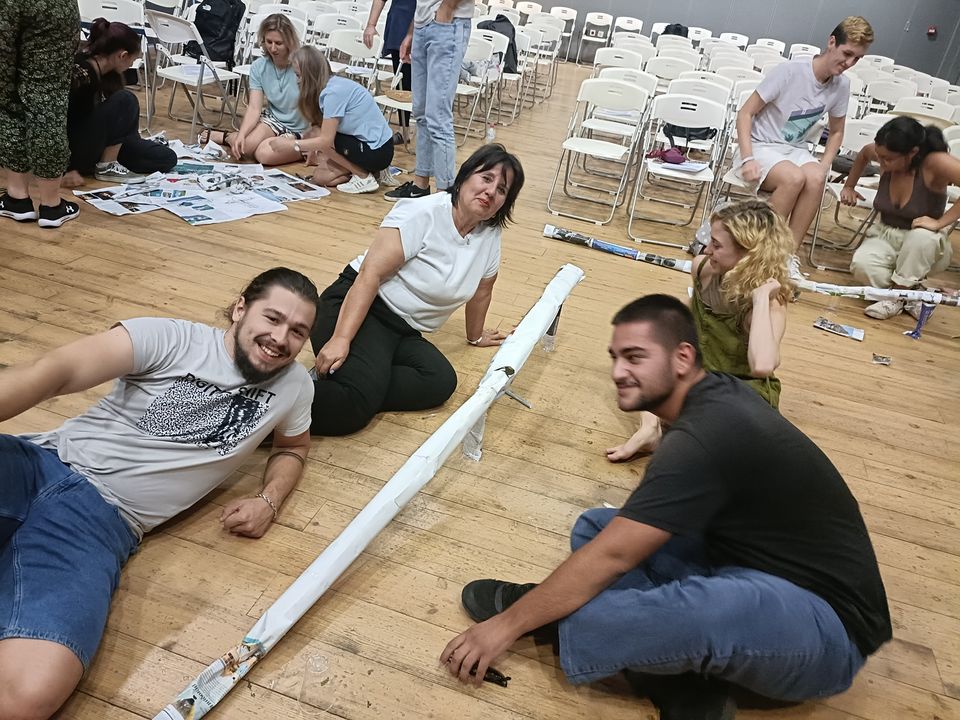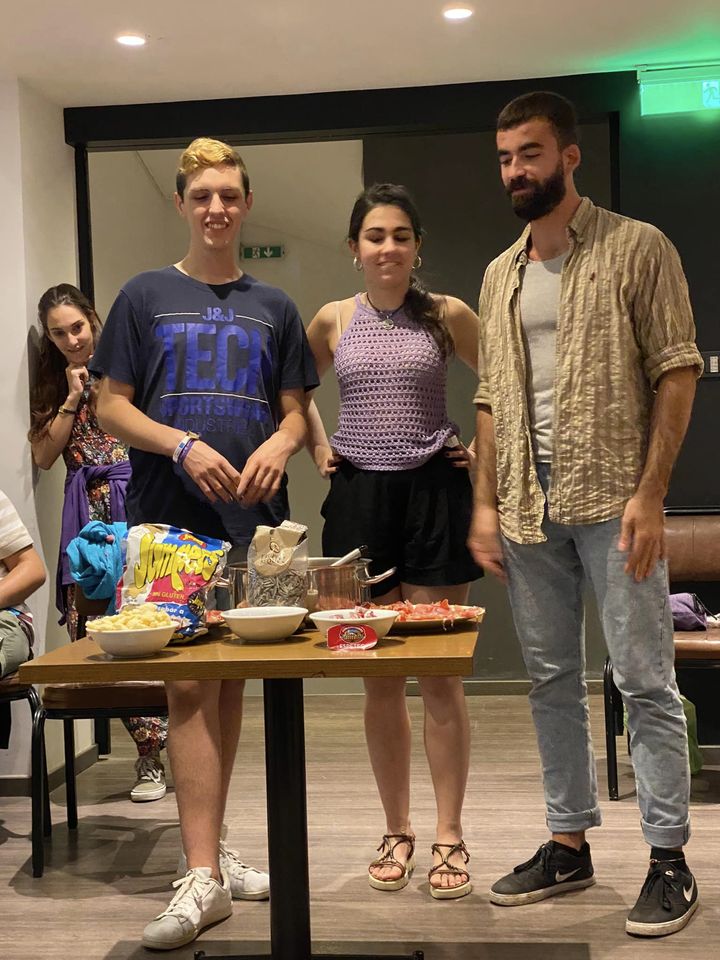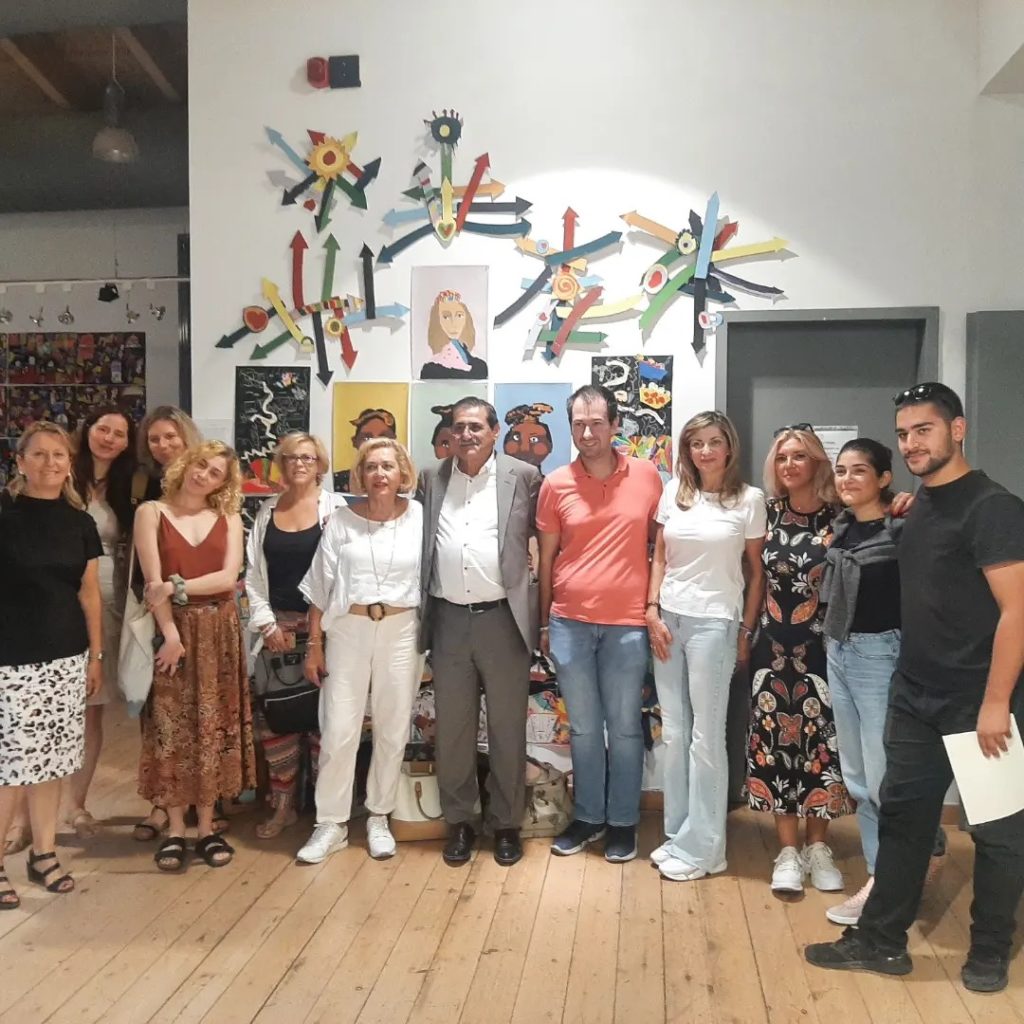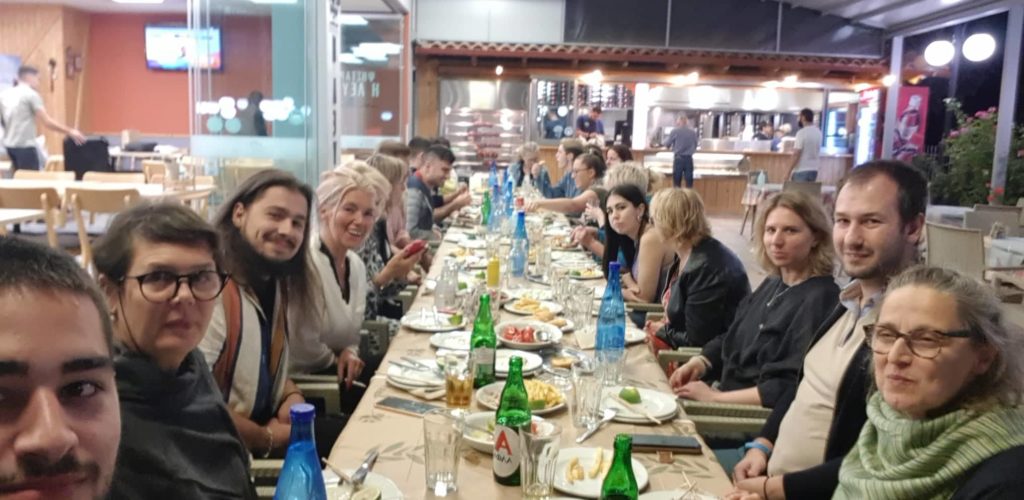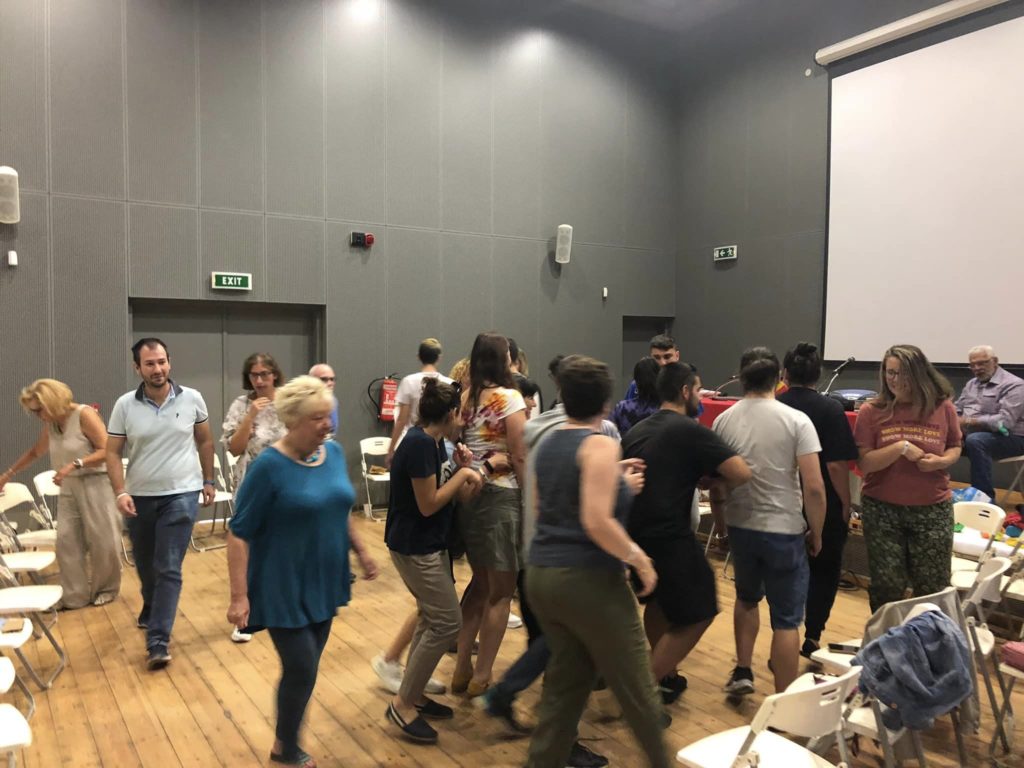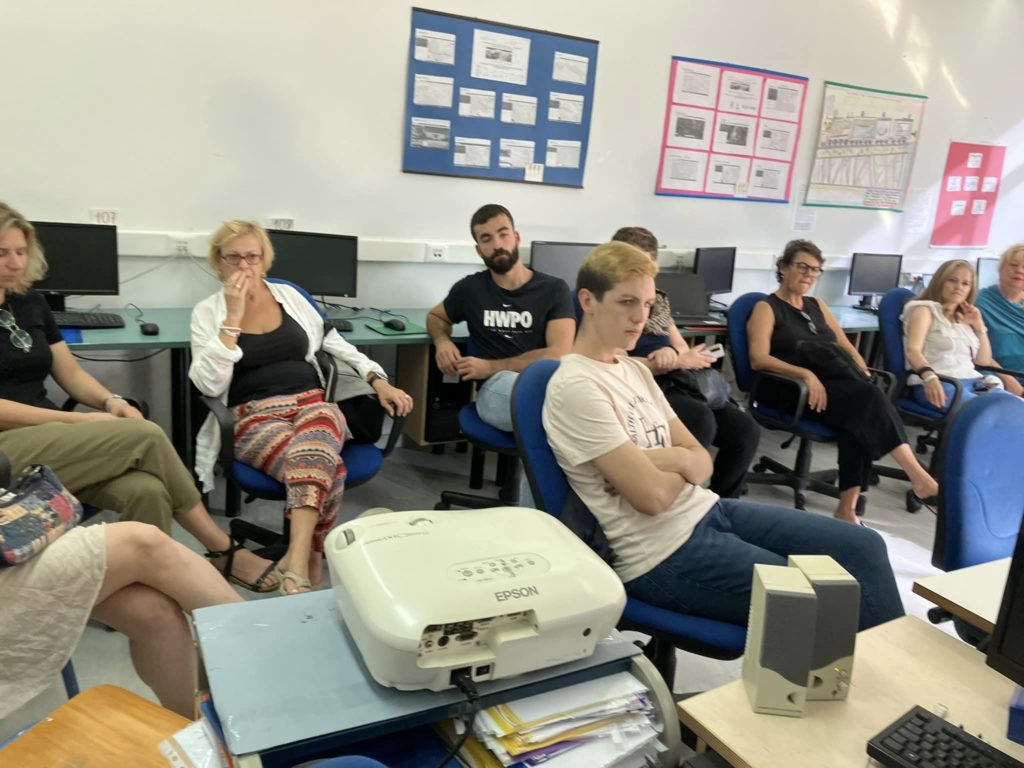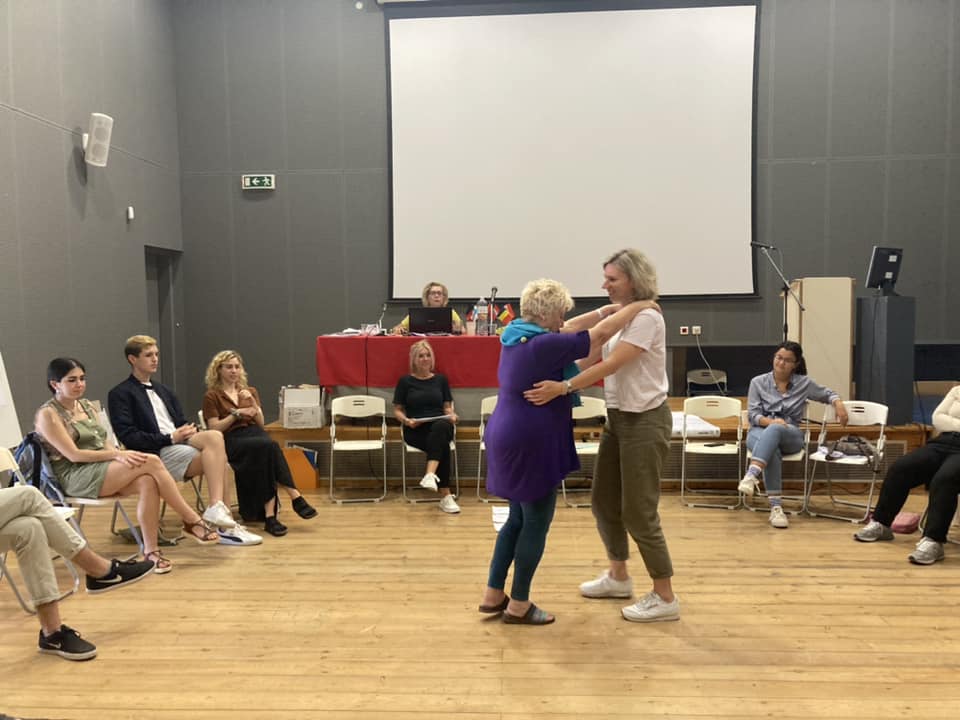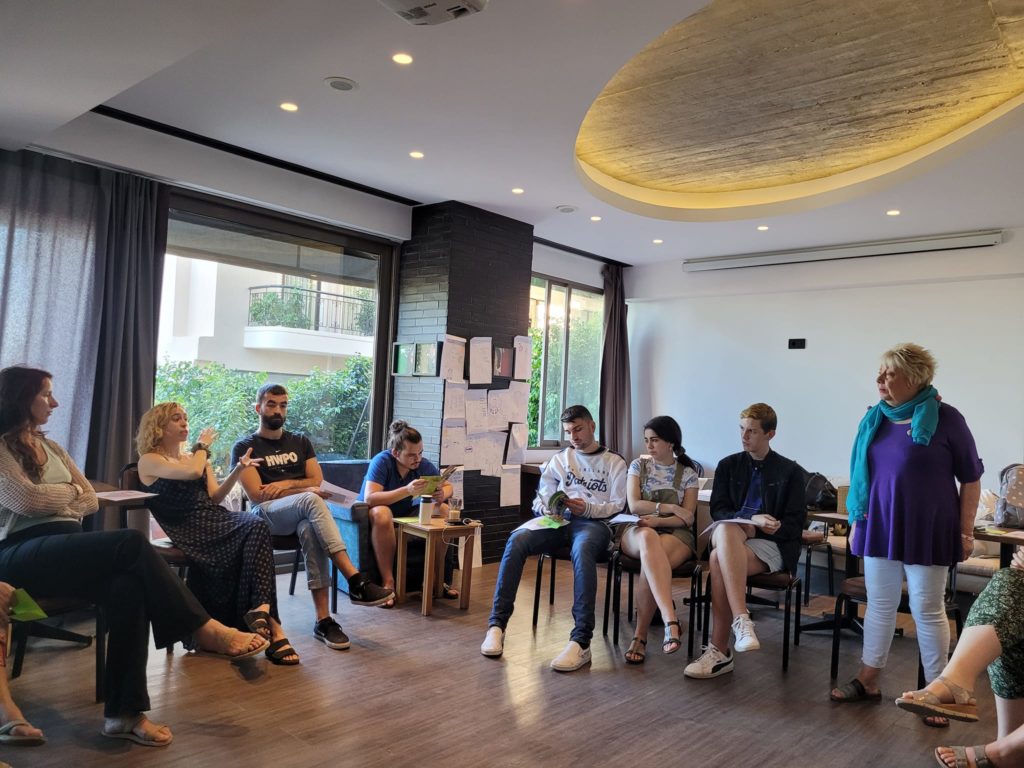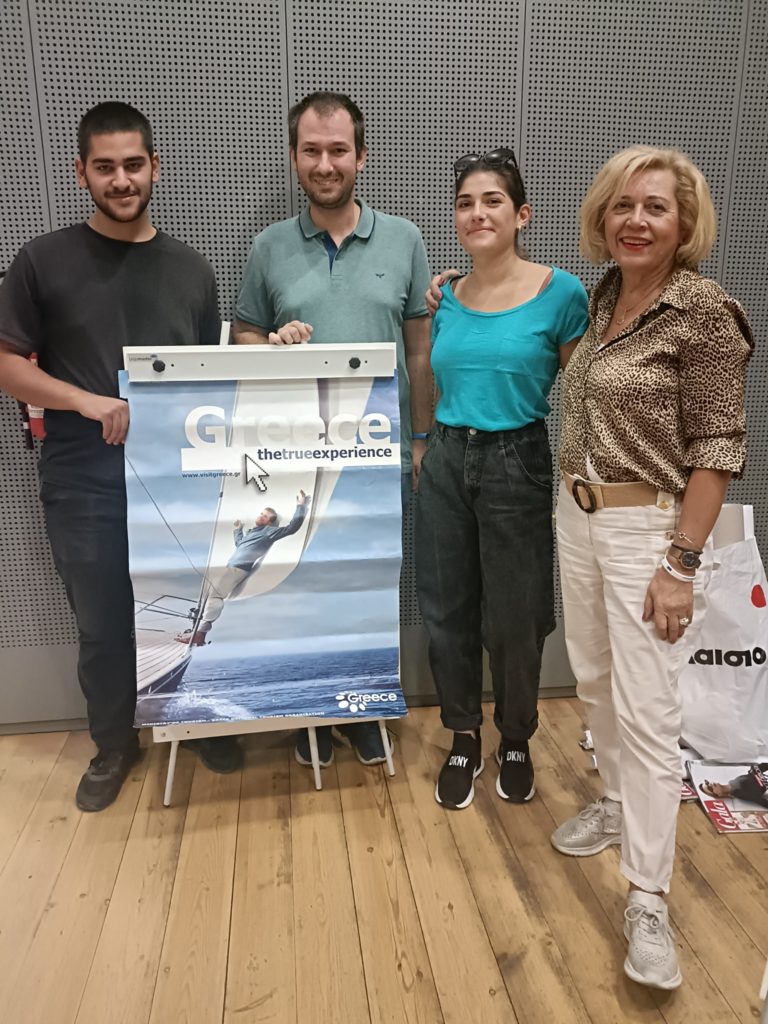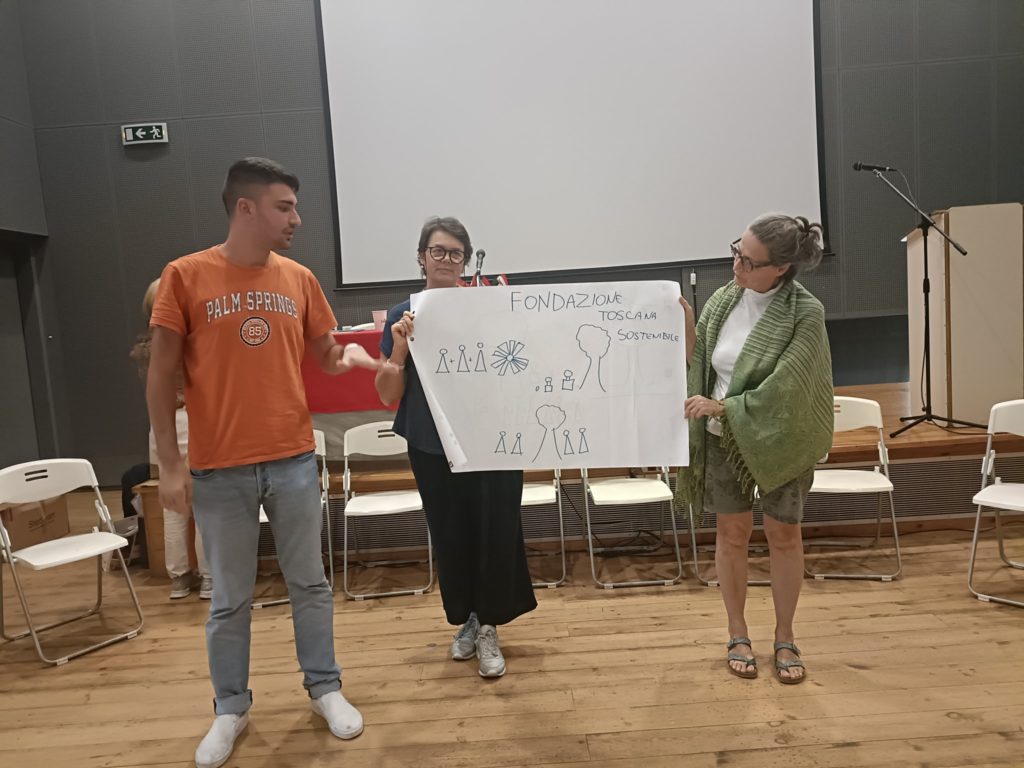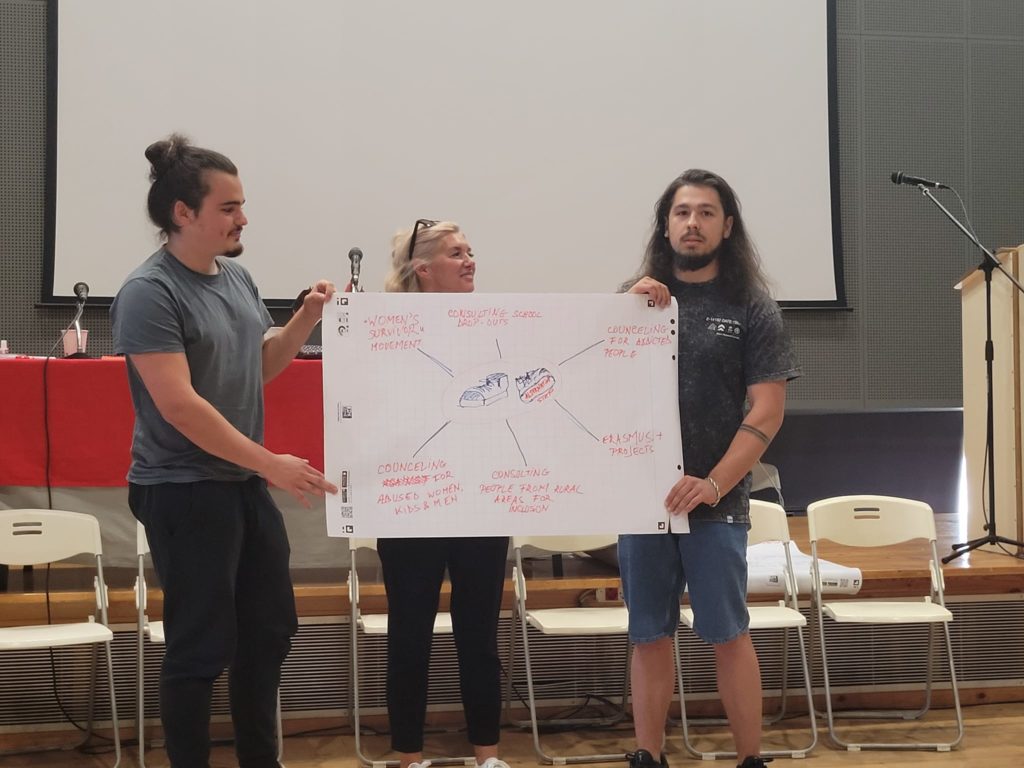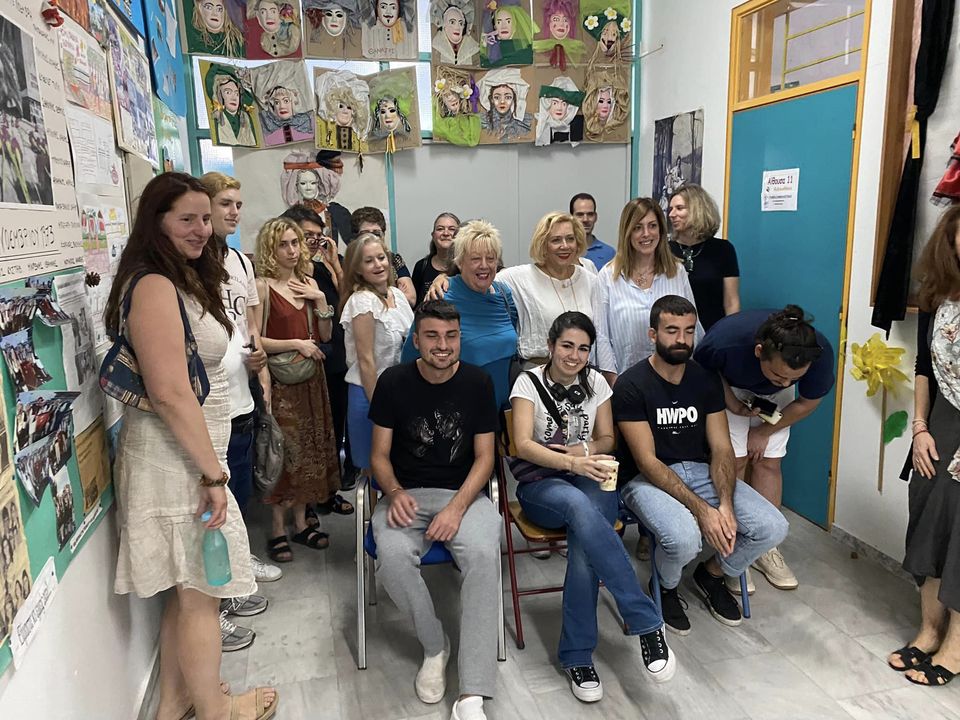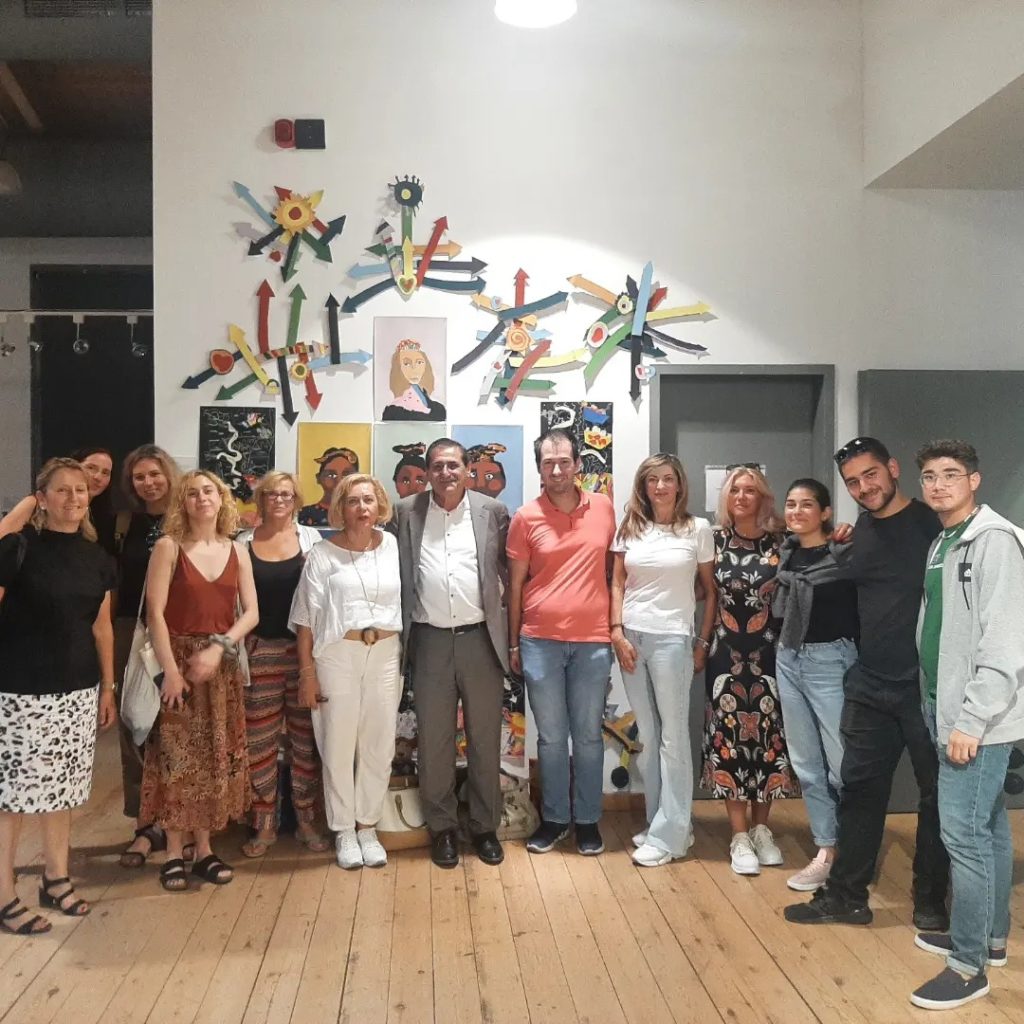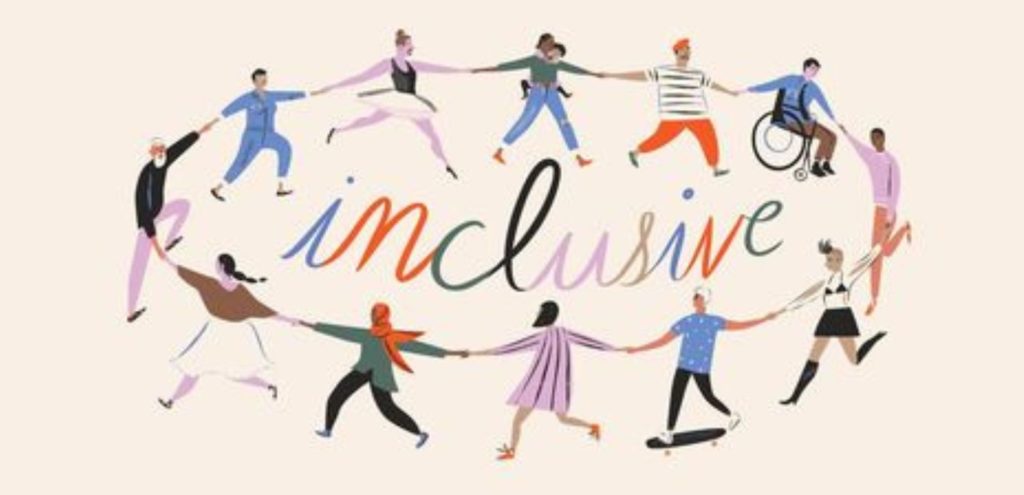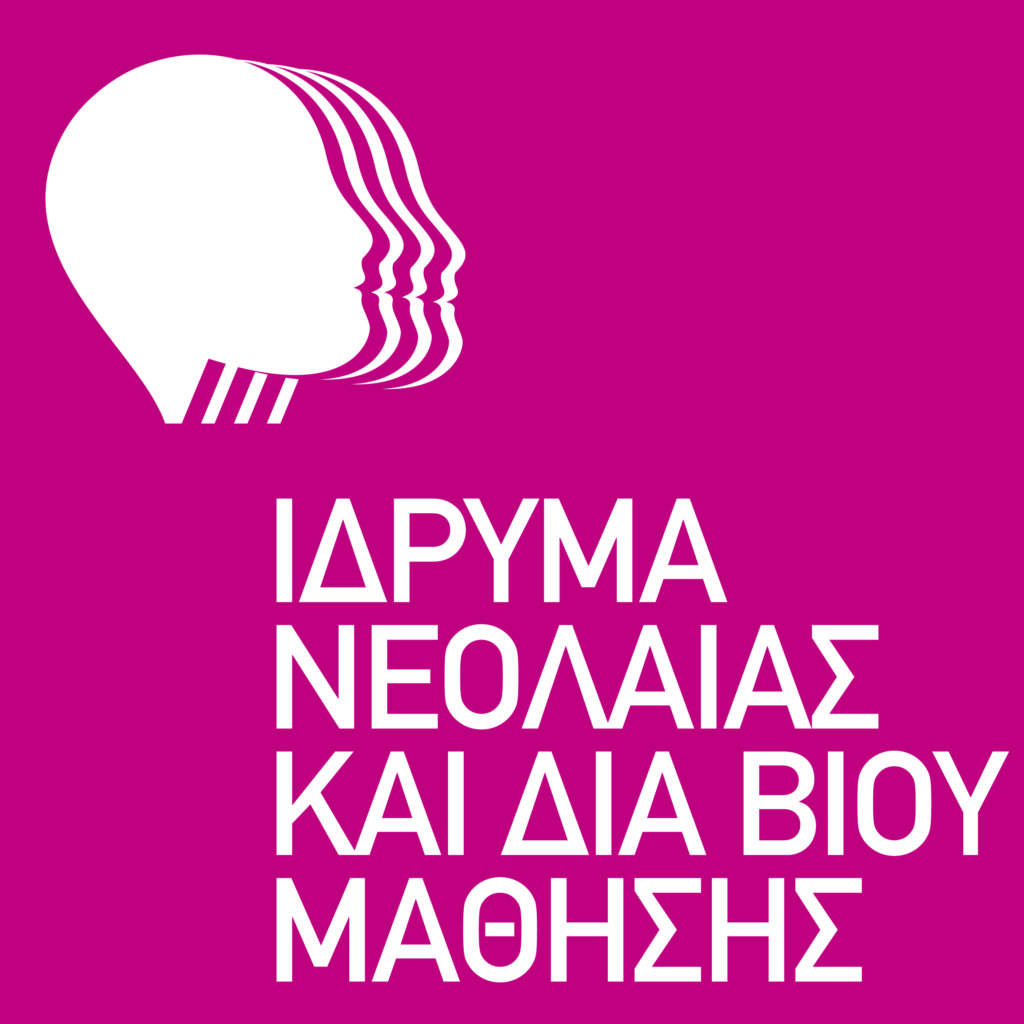Summary
Accredited Project for Youth Mobility 2022 (2022-1-EL02-KA151-YOU-000061360)
Background and Objectives
This project was a part of an Erasmus+ Accreditation in the field of Youth, aiming at cross-border co operations, exchanges and learning mobility opportunities. The organization and implementation of this accredited project was based on a strategic development plan with specific objectives and planned activities. The following activities were implemented as part of this accredited project:
- Staff Mobility: Professional Development Activity (PDA) – Training Course (TC): “Activating Youth Workers in Social Inclusion”.
- Learner Mobility: Youth Exchange (YE): “Art Activates Youth in Social Inclusion”.
The aim of the PDA was to strengthen the Youth Workers’ personal and professional development through non-formal and informal learning mobility activities and reinforce them with competences, because they need to have more qualifications for the challenges of our EU society. Thus, using the acquired knowledge and competences, Youth Workers would be able to support other young people and disseminate the gained experience in their communities.
The aim of the YE was to improve, enhance the skills set of young people, especially those with fewer opportunities and develop their key competences, via art sessions/workshops, in order to be socially included, empowering them for being active European citizens.
Our innovative accredited project seeked to enhance and promote social inclusion, diversity, intercultural dialogue and the values of solidarity, equal opportunities and human rights, among our EU youngsters, especially those with fewer opportunities.
We ensure that this project progress aligned with our vision and the roadmap of our accreditation activity plan, as there was connection between project objectives and the strategic development plan. It revealed new issues and challenges that we may not have anticipated, we empowered our staff, the Youth Workers and our team to reach common goals, building trust and transparency among those directly involved with the project.
The objectives of this project were achieved through the planning and implementation of the PDA and YE activities:
- First of all, via the PDA activity, we set as our priority to foster quality development of youth work at local, regional, national, European and international level by building the capacity of our Institute to be active in the field of youth and supporting the professional development of Youth Workers. We wanted to offer, train and reinforce the Youth Workers, to foster their empowerment, their active citizenship and participation in democratic life, in order to support other young people and disseminate the gained added value and experience in their communities.
- Secondly, via the Youth Exchange, we wanted to break down the boundaries of social exclusion for young people, especially those with fewer opportunities. Our objective was to include mainly young people with financial, social, geographical and cultural barriers in all aspects of social and civic life, youth with health problems or any other kind of disabilities or any other youngster that is facing any kind of discrimination in his/her everyday life. It was vital to empower, equip young people and youth workers with necessary competences, life-skills to successfully manage and support diversity, to interconnect them and engage them in our societies to be active EU citizens. This contributed to positive interaction to youth with diversity, regardless ethnicity, religion, sexuality, skin color, socio-economic background, educational level. Supporting young people with fewer opportunities to be included is a benefit to our society, ensuring that all young people take part and focus on diversity, recognizing the value of differences.
Objectives of PDA:
- Improve the preparation of youth workers, to be able to support participants with fewer opportunities during the mobility activities.
- Enhance and motivate youth workers’ awareness about social inclusion of youth with fewer opportunities via non-formal learning methods.
- Set the basis for the creation of an international network for the inclusion in Erasmus+, in the framework of our Erasmus+ accreditation.
- Create common standards for the involvement, preparation and follow-up of participants with fewer opportunities.
- Make agreements about mutual cooperation in future projects in the field of inclusion.
- Develop social skills, team spirit and attitudes of youth workers, share experiences, exchange ideas and establish quality partnerships with European peers.
Objectives of YE:
- Enhance and motivate youngsters’ awareness about social inclusion via non-formal learning methods, using art as a non-formal tool for enhancing social inclusion.
- Foster the social, communication skills, team spirit of youth, sharing experiences, exchange ideas and empower them with intercultural awareness.
- Cultivate youth’s perception, imagination, creativity and initiative, broaden spiritual horizons, as they focus on artistic work.
Implementation
We implemented the following Activities:
- 6 virtual meetings: via ZOOM platform (13/09/2022, 21/09/2022, 04/11/2022, 30/01/2023, 27/04/2023, 27/07/2023), in which partners’ and coordinator’s youth workers met together, shared opinions, so that the Activities (PDA and YE) would run softy and be well-prepared.
- PDA-TC: 22 participants participated in the PDA “Activating Youth Workers in Social Inclusion”, on 06-11/10/2022, in Patras, Western Greece. It was a TC about the promotion of social inclusion and diversity. It featured youth workers, from 7 EU countries to share insights, research findings, food for thought, good practices or inspirational stories about social inclusion. The Youth Workers would guide participants through the topic of social inclusion, inspiring them to make their organisations more inclusive, embrace human differences and picture how the future of youth work of social inclusion might be.
- Preparatory Visit (PV): It took place in Patras and Selianitika, Western Greece, on 31/03/2023-02/04/2023. 7 partners’ leaders and 2 Greek leaders met together to discuss, prepare, plan sessions/workshops in the best way. The PV aimed at ensuring high quality activities, facilitating and preparing practical project arrangements, for the best success of it. During the PV the group leaders planned, commented and discussed all YE details.
- YE: 43 young participants from 8 EU countries participated in the YE “Art Activates Youth in Social Inclusion”. The youngsters coexisted in the natural environment at Selianitika, Aigialeias, Western Greece, on 24/06/2023-01/07/2023, sharing experiences, ideas -feelings. Youth involved in this project, via non-formal methods, shaped a better view of all forms of art and the theatre in Greece, expressing their talents, developed critical spirit, cultivated perception, imagination, creativity and initiative, broadening their horizons. This YE became a proxy for participants to create their own portfolio of competences/skills, so as to succeed in their personal life, offering chances to learn about various forms of art as a tool for enhancing social inclusion.
All youngsters actively participated in the preparation, implementation, evaluation, dissemination & follow-up project phases. All the YE workshops empowered youth with the 8 key competences, via non-formal methods: team-building activities, energizers, acting, team games, role-play, meeting with the local authorities, intercultural nights and art workshops.
Participants: The main target group of our project was active youth workers working in the field of social inclusion and young participants. We offered chances for personal, socio-educational and professional development of youngsters, particularly those with fewer opportunities.
- Profile of PDA Participants: 22 participants (aged 18+) came from 7 EU countries: Greece, Romania, Italy, Türkiye, Spain, United Kingdom (UK), and Hungary. All spoke English fluently, participated actively in all project phases, sharing ideas, being open-minded, interested in social inclusion. They committed to take part in projects local actions, disseminate in their own communities and mentor other young people in their communities. An important factor in the selection of participants was to choose young youth workers who would benefit the most from the project and staff mobility. Thus, 8 of the selected youth workers were youth workers with fewer opportunities.
- Profile of YE participants: 43 youngsters (aged 18–30) came from 8 countries (Greece, Romania, Italy, Türkiye, Spain, Cyprus, Hungary and Serbia). We needed mature young people who could develop a self-guidance in order to obtain key competences/art skills to confront life. They were totally 43 participants: 4 people + 1 leader without age limit per partner and 6 Greek participants + 2 leaders. 20 of the participants were with fewer opportunities (social, economic and geographical barriers, health problems and disabilities and cultural differences). The 9 Youth workers- leaders of the YE were with no age-limit.
All participants, especially those with fewer opportunities or coming from disadvantaged families, were the target group working with the method of non-formal learning. They spoke the English language, participating actively in all workshops, communicating with peers. Participants were open-minded, motivated in non-formal learning methods; they were committed to take part in project’s local actions and share the gained added value to their local community. The participants were selected based primarily on their affinity for using art and creativity as tools in youth work and their motivation to foster social inclusion via these tools. Our participants, especially those with fewer opportunities, witnessed the benefits of collaboration, teamwork, acting in theater performance and peer learning, being supported in the best way, during all project life-time.
Results
Results of the project:
- 3 video-clips were produced with all project activities:
- Video of PDA: https://www.youtube.com/watch?v=-Ob4Hm2-t7g
- Video of YE: https://www.youtube.com/watch?v=HApICfIeDgo
- Video for the theater “Wandering Odysseus” (30/06/2023): https://www.youtube.com/watch?v=55c1ATqpcyM
- Our website: https://achaikoinstituto.gr/, was updated with project info and photos/activities.
- Our Instagram account (@achaiaadulteducationinstitute) was updated by the Greek team.
- Sustainable ecological glass cups with the project logo, Erasmus+ and INEDIVIM logo offered to all youth workers of the PDA for free.
- FB group PDA: https://www.facebook.com/groups/481801336882967
- FB group YE: https://www.facebook.com/groups/724018696001818
- A dissemination info-day, was organized in each partner country in order to share the project results. During this dissemination day a workshop was implemented, as more local young people experienced the benefits of Erasmus+. In Greece, a dissemination day was implemented on #Erasmusdays 2022 (13/10/2022) and on #Erasmusdays 2023 (12/10/2023) in Patras with 20 young people and members of our Organisation.
- 3 Newsletters (PDA, PV, YE) were created by the Greek participants.
- 3 posters (PDA, YE and for the theatre play “Wandering Odysseus”) were created.
- Methods of non-formal learning Handbook developed by the Youth Workers of the PDA
- Theatrical play: 3 adapted Homers’ Rhapsodies “Wandering Odysseus”, by Greek participants.
- Infopacks (PDA, PV, YE) with the entire project info, travel details project, activities, timetable, accommodation, reimbursement.
- Reflection handbook of the PDA.
Impact of the project:
There was a long-term impact at national, regional, European and international level:
- On a local, regional and national level, Greek products, Greek tradition-lifestyle was promoted; more EU people were aware of our country and customs.
- Our activities had a big impact on local level, especially on local community; they raised awareness of local youth on EU activities/projects. More local citizens got to know about youth projects and possibilities and were interested in Erasmus+ youth projects. This kind of non-formal activities with participants from different EU countries resulted in the awareness of the local communities towards different cultures, lifestyles and customs.
- In fact, we involved local stakeholders, local municipalities of Patras and Aigialeia, so as to get motivated, to give extra attention to our activities and to propose possible proposals or providing more perspectives for youth, especially for those with fewer opportunities.
- All participating partners, local community of the partners’ countries gained EU added value.
- More EU people and communities in the partners’ countries became aware of the youth needs, got to know the existing youth situation nowadays about social inclusion. The youth learning activities had a significantly positive impact on youth, as well as on the organizations involved, local communities, on an EU economic and social basis.
- The participants discussed and shared their experiences and the gained EU added values with their peers in their organizations, when returning back home.
- We hope the impact of our activities to have a butterfly effect and many youngsters in EU to get inspired and empowered by the EU values, to become future active EU citizens.
- We raised awareness as far as EU projects are concerned.
- Our activities had a high impact at European level giving insights and tools on how to improve youth competences and life skills.
- Our partners developed more possible partnerships for future projects.
The youngsters:
- Acquired practical communication skills/competences, useful in their personal and professional development. We also believe that their teamwork, communication, collaborative, and social skills were improved.
- Strengthened their emotional skills (self-confidence, self-esteem), and social competences/skills, broadening their horizons.
- Improved key competences, developed creative skills and the sense of initiative, enhancing their active participation and being familiar with the methods of non-formal learning.
- Increased cultural awareness and expression of interest in cultural diversity through art activities, cultural visits of museums and intercultural nights.
- Built on individual people skills, discussing and working in mixed international groups, being able to present their work to the public (theatre), enhancing their intercultural awareness.
- Improved communication in English, active listening, expressing them.
- Got out of their comfort zone, made contacts and friendships with their peers from other EU countries for future cooperation. • Disseminated – shared the gained experience to other young people in their countries and local societies after the project end.
